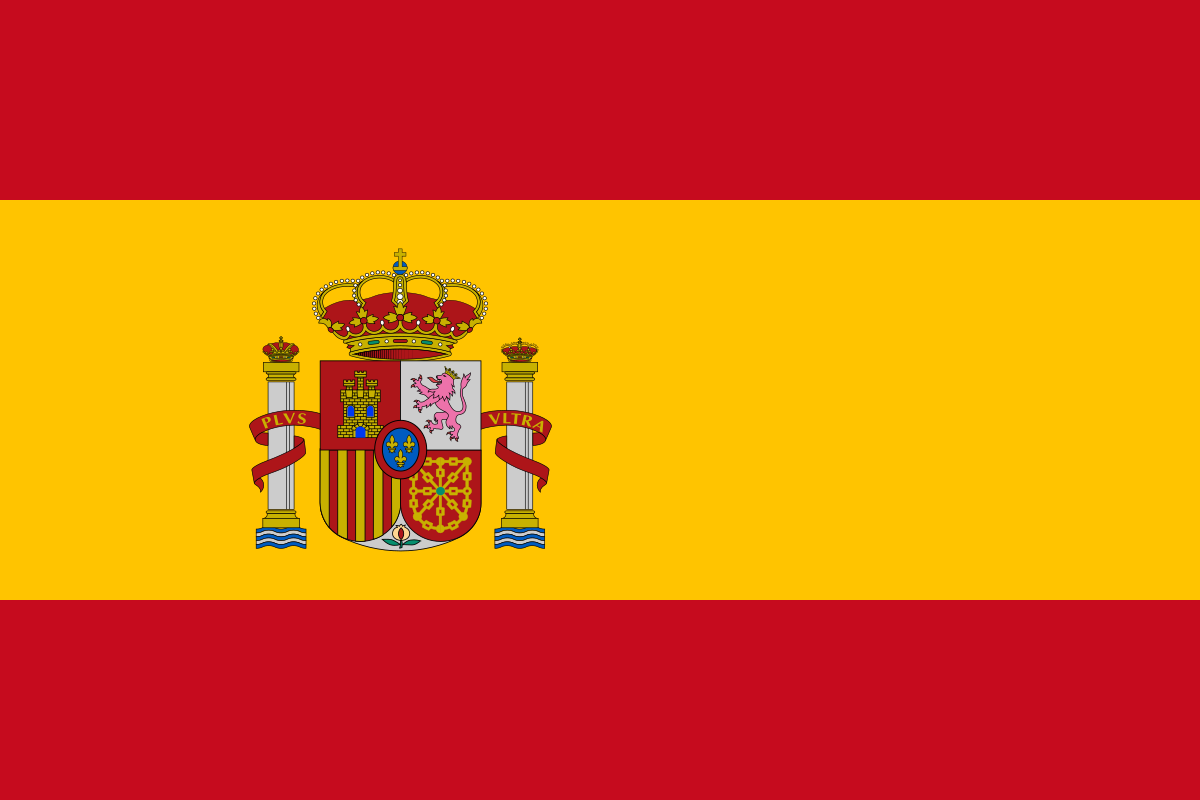
Marbella, Spain
The Bridge Marbella
Verified
Verified
This provider’s information has been quality-checked by Recovery.com’s Research Team for accuracy and completeness, including center verification through appropriate third-party organizations.
Estimated Cash Pay Rate
The cost listed here (€14,000 / 2 weeks) is an estimate of the cash pay price. Center pricing can vary based on program and length of stay. Contact the center for more information. Recovery.com strives for price transparency so you can make an informed decision.
Highlights from the Center
Highlights
These highlights are provided by and paid for by the center.
Family Owned & Operated
Utmost Confidentiality
Boutique
Spanish and English
About The Bridge Marbella
The Bridge is a family-run treatment center in Marbella specializing in drug and alcohol dependency, gambling and sex addiction, and eating disorders. Their boutique, abstinence-based programme is designed for clients aged 17+ who are ready to do the work of recovery—offering intentionally small groups and a high staff-to-client ratio. With detox, residential, dayhab, and online options, clients receive focused care in a nurturing, private setting where every element is shaped around comfort, safety, and personal growth. Clients may stay for as little as two weeks (if detox isn’t needed), though a minimum one-month stay is recommended for better outcomes.
Build Mental, Emotional, and Physical Strength
Each client receives a tailored treatment plan with a wide range of techniques and activities. One-to-one and group sessions include cognitive behavioural therapy (CBT), trauma therapy and experiential therapy. Clients also benefit from family liaisons and support, in-house yoga and Pilates, body image workshops, 12-Step meetings and nutritional rehabilitation. Alongside these core treatment options, they offer equine therapy, guided meditation, and daily walks.
Feel the Power of Vitamin Sea
The region boasts 300 days of sunshine, proximity to the sea, and abundant nature, which all serve to boost the mood daily and on excursions. The Bridge’s luxury residence offers spacious en-suite rooms, serene gardens, and a pool for relaxation or exercise. With tremendous support staff—a private chef, concierge, chauffeur, personal trainer and more—providing the utmost hospitality and discretion, clients feel cared for and fully at ease throughout their recovery journey.
Avoid the Rehab-Relapse-Rehab Cycle
Aftercare is central to The Bridge’s mission—providing the skills and support needed to act as a bridge back into normal life. Their team works hard to ensure sustained progress after residential treatment by setting up support networks, offering practical tools, continuing therapy sessions for up to 8 weeks, and providing dayhab and online support.
Read More
Protect a Career While Prioritising Health
The Bridge is well-suited for executives needing flexibility and discretion. Clients benefit from WiFi access, private space, and time to focus. Treatment can be framed as a holiday, with continued remote care after returning. Alternatively, the team can liaise with employers to safeguard jobs and ensure special allowances as they would with an illness.
Escape the Familiar to Begin Again
Receiving treatment abroad at The Bridge provides the physical distance needed for clarity and change. Clients gain perspective away from familiar triggers and routines. With regular, affordable flights to Andalusia from the UK and Europe, The Bridge can also provide a sober companion for the journey—helping clients begin their healing journey with reassurance.
Rise Above Destructive Urges
The Bridge offers personalised gambling and sex addiction treatment that gets to the root cause and deals with any trauma that could be lying behind such addictions. Cognitive behavioural therapy (CBT) and 1:1 sessions help clients understand compulsions, manage triggers, and regain control with simple, but effective techniques.
Develop Fitness, Nutrition & Sleep Habits
The Bridge prioritises whole-person healing through physical fitness, nourishing meals, and restful sleep. Clients benefit from 1:1 and group exercise sessions, yoga, and nutrition coaching to improve mood, strength, and body image. Personalised sleep coaching helps identify barriers to quality sleep and restores rest—empowering clients with tools to greatly improve quality of life.

Center Overview
Estimated Center Costs
The cost listed here (€14,000 / 2 weeks), is an estimate of program cost. Center price can vary based on program and length of stay. Contact the center for more information. Recovery.com strives for price transparency so you can make an informed decision.
Older Adults
Addiction and mental health treatment caters to adults 55+ and the age-specific challenges that can come with recovery, wellness, and overall happiness.
Adolescents
Teens receive the treatment they need for mental health disorders and addiction, with the added support of educational and vocational services.
Co-Occurring Disorders
A person with multiple mental health diagnoses, such as addiction and depression, has co-occurring disorders also called dual diagnosis.
Executives
Executive treatment programs typically directly support the needs of people who manage businesses and may provide flexible schedules and office space to allow work during treatment.
Young Adults
Emerging adults ages 18-25 receive treatment catered to the unique challenges of early adulthood, like college, risky behaviors, and vocational struggles.
LGBTQ+
Addiction and mental illnesses in the LGBTQ+ community must be treated with an affirming, safe, and relevant approach, which many centers provide.
Men and Women
Men and women attend treatment for addiction in a co-ed setting, going to therapy groups together to share experiences, struggles, and successes.
Midlife Adults
For adults ages 40+, treatment shifts to focus on the unique challenges, blocks, and risk factors of their age group, and unites peers in a similar community.
Pregnant Women
Addiction and mental health treatment meets the clinical and psychological needs of pregnant women, ensuring they receive optimal care in all areas.
Professionals
Busy, high-ranking professionals get the personalized treatment they need with greater accommodations for work, privacy, and outside communication.
Veterans
Patients who completed active military duty receive specialized treatment focused on trauma, grief, loss, and finding a new work-life balance.
Treatment Focus
This center treats primary substance use disorders and co-occurring mental health conditions. Your treatment plan addresses each condition at once with personalized, compassionate care for comprehensive healing.
Treatment
Specializations
Alcohol
Using alcohol as a coping mechanism, or drinking excessively throughout the week, signals an alcohol use disorder.
Detox
Detox fully and safely removes toxic substances from the body, allowing the next steps in treatment to begin with a clean slate.
Cocaine
Cocaine is a stimulant with euphoric effects. Agitation, muscle ticks, psychosis, and heart issues are common symptoms of cocaine abuse.
Drug Addiction
Drug addiction is the excessive and repetitive use of substances, despite harmful consequences to a person's life, health, and relationships.
Eating Disorders
An eating disorder is a long-term pattern of unhealthy behavior relating to food. Most people with eating disorders have a distorted self-image.
Executives
Executive treatment programs typically directly support the needs of people who manage businesses and may provide flexible schedules and office space to allow work during treatment.
Gambling
Excessive, repetitive gambling causes financial and interpersonal problems. This addiction can interfere with work, friendships, and familial relationships.
Treatment Services
Day Treatment
In a PHP, patients live at home but follow an intensive schedule of treatment. Most programs require you to be on-site for about 40 hours per week.
Recovery Coaching
A support service designed to help individuals identify and maintain their personal recovery goals, provide guidance and support, and connect them with recovery resources and community-based services.
Detox
Detox fully and safely removes toxic substances from the body, allowing the next steps in treatment to begin with a clean slate.
Intensive Outpatient Program
In an IOP, patients live at home or a sober living, but attend treatment typically 9-15 hours a week. Most programs include talk therapy, support groups, and other methods.
Outpatient
During outpatient rehab, patients attend a structured treatment program while continuing to live at home.
Residential
In a residential rehab program, patients live onsite, with access to daily treatment and 24-hour care. An average stay is 30-90 days.
Approaches
Family Involvement
Providers involve family in the treatment of their loved one through family therapy, visits, or both–because addiction is a family disease.
Holistic
A non-medicinal, wellness-focused approach that aims to align the mind, body, and spirit for deep and lasting healing.
Individual Treatment
Individual care meets the needs of each patient, using personalized treatment to provide them the most relevant care and greatest chance of success.
Personalized Treatment
The specific needs, histories, and conditions of individual patients receive personalized, highly relevant care throughout their recovery journey.
Twelve Step
Incorporating spirituality, community, and responsibility, 12-Step philosophies prioritize the guidance of a Higher Power and a continuation of 12-Step practices.
Therapies
1-on-1 Counseling
Patient and therapist meet 1-on-1 to work through difficult emotions and behavioral challenges in a personal, private setting.
Meditation & Mindfulness
A practiced state of mind that brings patients to the present. It allows them to become fully aware of themselves, their feelings, and the present moment.
Body Image Therapy
Therapists use cognitive behavior techniques to challenge how patients perceive their body and their worth, rewriting negative thoughts and attitudes.
Weight Loss
Programming designed to promote sustainable health and wellness through personalized nutrition and fitness plans.
Family Therapy
Family therapy addresses group dynamics within a family system, with a focus on improving communication and interrupting unhealthy relationship patterns.
Interpersonal Therapy
This brief and structured therapy addresses present relationships and improves overall communication at work, home, and other social settings.
Life Skills
Teaching life skills like cooking, cleaning, clear communication, and even basic math provides a strong foundation for continued recovery.
Psychoeducation
This method combines treatment with education, teaching patients about different paths toward recovery. This empowers them to make more effective decisions.
Conditions We Treat
Pornography Addiction
A person with a porn addiction is emotionally dependent on pornography to the point that it interferes with their daily life and relationships.
Anxiety
Anxiety is a common mental health condition that can include excessive worry, panic attacks, physical tension, and increased blood pressure.
Codependency
Codependency is a pattern of emotional dependence and controlling behavior. It's most common among people with addicted loved ones.
Depression
Symptoms of depression may include fatigue, a sense of numbness, and loss of interest in activities. This condition can range from mild to severe.
Eating Disorders
An eating disorder is a long-term pattern of unhealthy behavior relating to food. Most people with eating disorders have a distorted self-image.
Gambling
Excessive, repetitive gambling causes financial and interpersonal problems. This addiction can interfere with work, friendships, and familial relationships.
Gaming
Compulsive gaming is most often a problem for children and teens. The disorder can affect physical health, sleep, and the ability to focus at school.
Internet Addiction
Internet addiction is common among children teens. This compulsive disorder can damage relationships, school performance, sleep habits, and physical health.
Sex Addiction
Compulsively seeking out sex can easily become a problem. This addiction is detrimental to relationships, physical health, and self-esteem.
Shopping Addiction
Excessive shopping and spending also known as compulsive buying disorder makes life unsustainable. It puts a strain on finances, relationships, and emotional well-being.
Substances We Treat
Alcohol
Using alcohol as a coping mechanism, or drinking excessively throughout the week, signals an alcohol use disorder.
Benzodiazepines
Benzodiazepines are prescribed to treat anxiety and sleep issues. They are highly habit forming, and their abuse can cause mood changes and poor judgement.
Chronic Relapse
Consistent relapse occurs repeatedly, after partial recovery from addiction. This condition requires long-term treatment.
Co-Occurring Disorders
A person with multiple mental health diagnoses, such as addiction and depression, has co-occurring disorders also called dual diagnosis.
Cocaine
Cocaine is a stimulant with euphoric effects. Agitation, muscle ticks, psychosis, and heart issues are common symptoms of cocaine abuse.
Drug Addiction
Drug addiction is the excessive and repetitive use of substances, despite harmful consequences to a person's life, health, and relationships.
Heroin
Heroin is a highly addictive and illegal opioid. It can cause insomnia, collapsed veins, heart issues, and additional mental health issues.
Psychedelics
Hallucinogenic drugs—like LSD—cause euphoria and increased sensory experiences. When abused, they can lead to depression and psychosis.
Methamphetamine
Methamphetamine, or meth, increases energy, agitation, and paranoia. Long-term use can result in severe physical and mental health issues.
Aftercare
Experience
Personal Amenities
Amenities
Special Considerations
Couples program
Using gentle clinical care, therapists guide patients and their partner through guided sessions to address issues and work towards lasting solutions.
Young Adults Program
Programs for young adults bring teens 18+ together to discuss age-specific challenges, vocational and educational progress, and successes in treatment.
Activities
Yoga
Yoga is both a physical and spiritual practice. It includes a flow of movement, breathing techniques, and meditation.
Off-Site Activities
Yoga
Yoga is both a physical and spiritual practice. It includes a flow of movement, breathing techniques, and meditation.
Off-Site Amenities
Professional Staff

Howard Silver
Co-Founder

Zalyia Silver
Co-Founder

Ali Silver
Co-Founder
Nutritional Therapist, Qualified Eating Disorder Practitioner

Tamu and Bear
Learn more about The Bridge Marbella
Testimonial
My stay at was an experience and opportunity that I will never forget. It became my home and every staff member and client became my family. The trust, honesty and compassion of every single individual in here has helped me progress in my recovery and I will always be grateful. They took me in broken and I’m going home recovered. This place and the people in it are the magic that takes place here.
E.B.
Accommodations
Food & Nutrition
Treatment
Value
Pros
- Beautiful Location (7)
- Luxurious Accommodations (3)
- Excellent & Effective Treatment Programming (5)
- Personalized (6)
K.B.
AM
GJS
CHS
Carl S
We love hearing about your treatment experience
Help individuals and families seeking treatment by sharing your first-hand experience with this treatment provider. Review Guidelines.




























